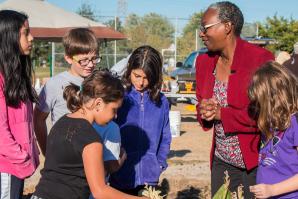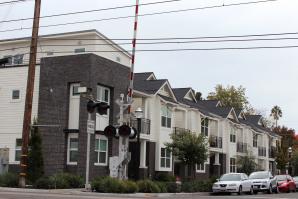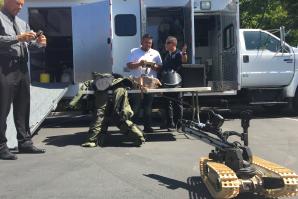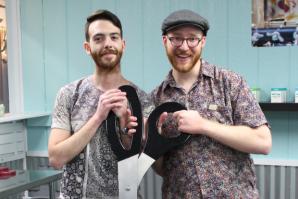
From Healthcare Administration to a Blooming Business
How the owner of Tula in Bloom built her confidence by building a business
The myth of overnight success is an easy fallacy to believe. We all wish success came so easy. However, the real story behind most small businesses is much less cinematic. Building a business takes time, strategy and the willingness to try things that may or may not work.

Sacramento’s Creative Class Needs Opportunities to Connect
CMND SHFT has become more than just an annual conference. It is also a tremendous amount of work that no one gets paid for. That said, we’ve found the benefits far outweigh the effort, and we’re well on our way to planning next year.

Retooling Tradition
Stephanie Bray, CEO of United Way California Capital Region, brings a fresh focus to the long-standing charitable establishment
If recruiting and empowering millennials and gen-Xers challenged the status quo, there’s no telling what will happen in coming months as Bray’s bold new vision for United Way unfolds.

Rising Conflict
Residents of Sacramento’s first net-zero energy community claim their homes may not be net zero after all
Less than three years after its first resident moved in, the highly-touted energy-efficient development in Sacramento called 2500 R Street is now mired in a legal dispute over the alleged false advertising of its homes as net-zero energy and LEED-certified.

Startup of the Month: LiquidGoldConcept
Health tech startup delivers breastfeeding toolkit — will mothers and med students latch on?
In the first few days after a baby is born, the mother produces colostrum — a yellowish, thick and sticky substance packed with fat, micronutrients and antibodies. In breastfeeding circles, this special milk is called “liquid gold,” which is essentially a supercharged immunity boost to equip newborns for their new world.

Power Inn Alliance Forges Partnership with Sacramento Police
Advocacy group and law enforcement work together to share information and reduce crime
When a woman drove a Lexus SUV through Fruitridge and Power Inn Road earlier this year, there were no obvious signs that it was hot and teaming with drugs. Within moments a police observation device returned a hit on the stolen vehicle, and Sacramento Police Department Officer Patrick Mulligan had her pulled over.

Is Your Business Locked into Narrow Thinking?
The space between the either/or continuum is full of unexplored option
Have you heard the riddle of a father and son who get in a horrible car crash that kills the dad? The son is rushed to the hospital and the surgeon exclaims, “I can’t operate, that boy is my son!” The listener’s expectation is challenged when the riddle’s answer is given: The surgeon might be the boy’s mother.

From Economic Slump to Flagship Storefront
How the couple behind Sudz by Studz in Folsom launched a successful artisan skincare line during the economic downturn
If someone had told Tyler Robinson and Preston Tillotson, of Sudz by Studz, five years ago that they would be making soap and other skincare products for a living, both would have likely laughed at the idea. Yet, the economic downturn paired with a perfectly-timed soap making adventure led the couple to do just that.

Just Play
Next Move Sacramento helps homeless families get back on track and lets homeless children experience normalcy
Next Move serves more than 10,000 people in the Sacramento area every year. They provide a safety net of services that range from arranging for bus passes to maintaining permanent housing for the disabled or mentally ill.

A System of Support
Court Appointed Special Advocates give years of their time and support to local foster youth
Family upheaval cast Jairus into foster care at age 5. Now almost 19, he’s taking his first steps into adulthood. Even after a life in the foster care system, he’s thriving, thanks to his resourcefulness and optimism and support from his Court Appointed Special Advocate — his CASA — Dennis Beasley.


